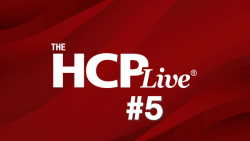
OR WAIT null SECS
FDA Grants Fast Track Designation to Rezpegaldesleukin for Atopic Dermatitis
The drug given this designation, known as rezpegaldesleukin, is indicated for adult and pediatric patients aged 12 years and older with atopic dermatitis.
An announcement by Nektar Therapeutics highlights the new decision by the US Food and Drug Administration (FDA) to grant Fast Track designation to rezpegaldesleukin for the treatment of adult and pediatric patients with moderate-to-severe atopic dermatitis.1
Respegaldesleukin is an investigational biologic option which was formulated to stimulate the proliferation of regulatory T cells by targeting the interleukin (IL)-2 receptor complex, potentially leading to restored immune system balance. The drug was designed to do this for patients with atopic dermatitis, an inflammatory condition that impacts approximately 30 million individuals within the US.
“We are pleased that rezpegaldesleukin has been designated a Fast Track product," Jonathan Zalevsky, PhD, Nektar’s senior vice president and Chief Research and Development Officer, said in a statement. "Rezpegaldesleukin has the potential to address a significant unmet need for the millions of patients living with moderate-to-severe atopic dermatitis.”1
Prior to the February 10 announcement of its designation, rezpegaldesleukin’s efficacy in treating atopic dermatitis was evaluated in the phase 2b REZOLVE-AD clinical trial.1 In the REZOLVE-AD phase 2b analysis, the team enrolled 398 individuals with moderate-to-severe atopic dermatitis who had not previously been treated with biologic options or with JAK inhibitors. Patients with atopic dermatitis were recruited across approximately 110 sites across the world.
The REZOLVE-AD investigators randomly assigned their trial participants to be given 1 of 3 different dose regimens of rezpegaldesleukin or provided with a placebo during a 16-week induction phase. The team then re-randomized subjects who met a specified improvement threshold in their Eczema Area and Severity Index (EASI) score to be provided maintenance therapy at their original dose level, either once in a given month or once every 3 months.
The investigative team’s primary endpoint in REZOLVE-AD was the mean improvement in EASI score after the 16-week induction period. In terms of secondary endpoints assessed in the study, examples include the proportion of subjects reporting at least a 75% EASI score improvement (EASI-75), a Validated Investigator Global Assessment for Atopic Dermatitis (vIGA-AD) score of 0 or 1, and experiencing a 4-point or more reduction on the Itch Numeric Rating Scale (NRS).
A Body Surface Area (BSA) involvement of at least 10%, a minimum EASI score of 16.0, and a vIGA-AD score of 3 at the screening and randomization time points had been required for participants to enroll.
The announcement by Nektar highlighted rapid improvements that had been observed in exploratory disease outcomes during the 12-week induction treatment phase of a phase 1b study.1,2 They also noted improvements for at least 36 weeks following medication cessation, highlighting proof-of-concept in the drug’s indication.
“We remain on track to announce topline data from the induction period of our Phase 2b REZOLVE-AD study in the second quarter of this year,” Zalevsky said in a statement. “This designation will now allow us to collaborate closely with the agency on the design of the registrational program for rezpegaldesleukin once we've completed Phase 2.”1
References
Nektar Therapeutics Receives Fast Track Designation for Rezpegaldesleukin for the Treatment of Moderate-to-Severe Atopic Dermatitis. Nektar Therapeutics. February 10, 2025. https://www.prnewswire.com/news-releases/nektar-therapeutics-receives-fast-track-designation-for-rezpegaldesleukin-for-the-treatment-of-moderate-to-severe-atopic-dermatitis-302371995.html.
Silverberg, J.I., Rosmarin, D., Chovatiya, R. et al. The regulatory T cell-selective interleukin-2 receptor agonist rezpegaldesleukin in the treatment of inflammatory skin diseases: two randomized, double-blind, placebo-controlled phase 1b trials. Nat Commun 15, 9230 (2024). https://doi.org/10.1038/s41467-024-53384-1.


